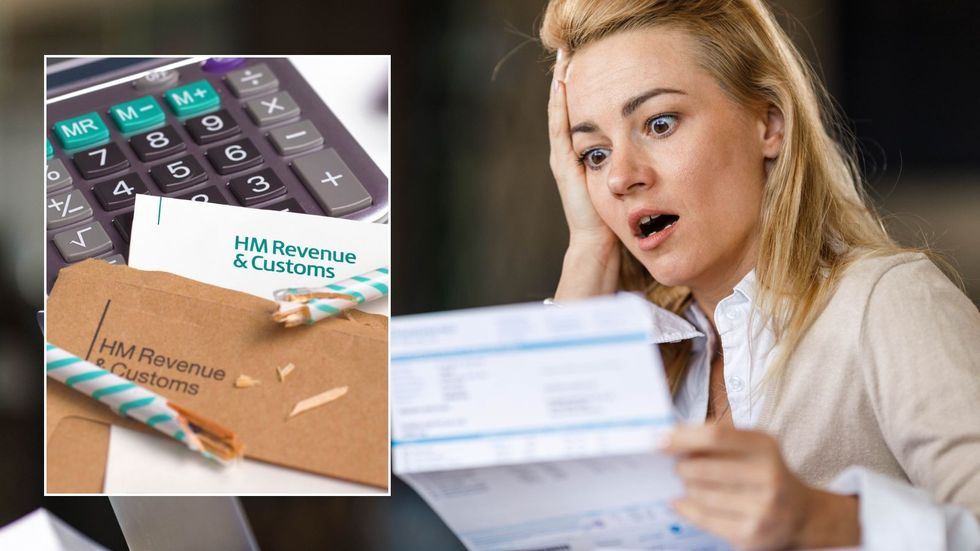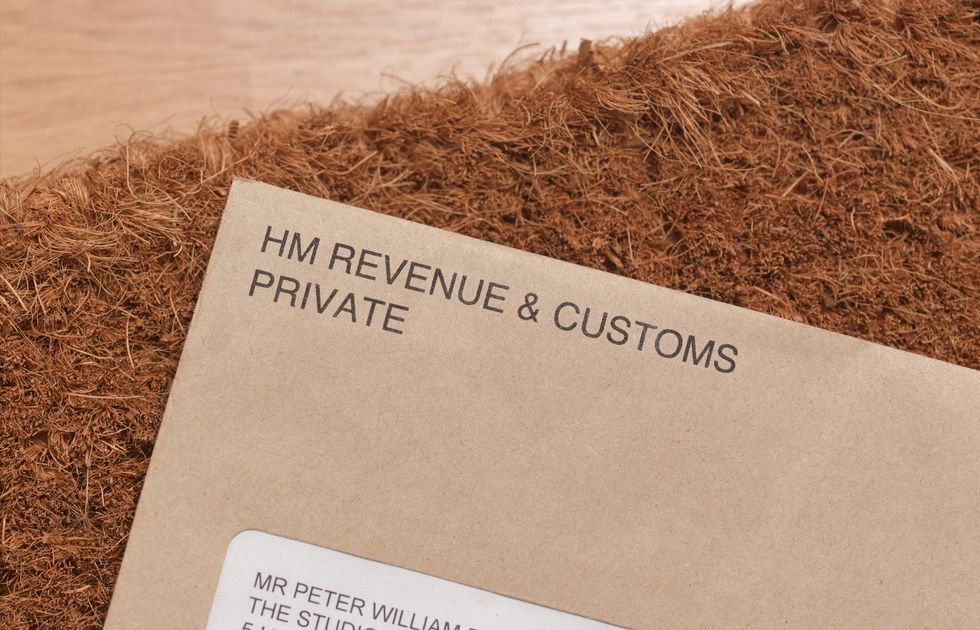Britons spent 800 years on HOLD to HMRC as Nigel Farage FUMES
GBNEWS
Between five per cent and 20 per cent of all UK registered companies were fraudulent in 2023
Don't Miss
Most Read
Trending on GB News
HMRC's £5.5billion estimate for tax evasion in 2022-23 is likely "vastly underestimated," according to a stark warning from MPs.
The House of Commons Public Accounts Committee said the tax authority is not being "sufficiently curious" about curbing losses from illegal tax underpayment.
The figure, which represents about 0.7 per cent of all taxes owed, has been challenged by the influential cross-party committee in a new report.
The findings mark the latest criticism of HMRC, following concerns over poor customer service, complex systems and falling productivity.
Evidence of HMRC's underestimation emerged from reforms introduced four years ago that made online platforms liable for VAT from overseas sellers.
These measures have generated an additional £1.5bn in tax revenue annually since 2021, five times more than HMRC's original estimates.

The committee found that between five per cent and 20 per cent of all UK registered companies were fraudulent in 2023
GETTYThe committee found that between five per cent and 20 per cent of all UK registered companies were fraudulent in 2023, suggesting widespread abuse of the system.
Sir Geoffrey Clifton-Brown, Conservative MP said: "More must be done to clamp down on fraud and root out the bad actors who are taking advantage of loopholes in the current system."
Criminal prosecutions for tax evasion have plummeted by 50 per cent, with just 344 cases brought by HMRC in 2023-24 compared to 749 in 2018-19.
The Public Accounts Committee warned this represents "too little deterrent" for would-be tax evaders.
Enforcement against fraudulent company practices appears particularly weak, with the Insolvency Service disqualifying only seven directors for phoenixism over a five-year period.
LATEST DEVELOPMENTS:
This comes despite phoenixism - where businesses are made insolvent to evade debts before reopening under new names - costing an estimated £500million annually.
The low prosecution numbers are especially concerning given estimates that up to one-fifth of company registrations may be fraudulent.
Government agencies have "failed to work collaboratively," the MPs found, with HMRC, Companies House and the Insolvency Service missing opportunities to increase tax collection.
The committee criticised HMRC's VAT registration processes as being "far too open to abuse," highlighting a case where a Cardiff taxpayer continues to receive demands for unpaid tax due to businesses fraudulently using their address.
The planned timeline of five to ten years to tighten company registration requirements is "too far in the future," according to the MPs.
Despite new powers granted under the Economic Crime and Corporate Transparency Act 2023, Companies House remains unable to verify company addresses.
Clifton-Brown said: "It is of deep concern that the many billions in tax rightfully meant for the public purse could just be the tip of the iceberg.
"Though we acknowledge the inherent difficulty of the issue, it is clear that more must be done to clamp down on fraud and root out the bad actors who are taking advantage of loopholes in the current system."

HMRC highlighted that the UK's tax gap stands at 4.8 per cent of taxes owed
GETTYHe emphasised that the current situation was unfair to those who abide by tax rules.
HMRC defended its approach in response to the report, citing its "risk-based approach to tackling evasion and other forms of non-compliance."
The tax authority highlighted that the UK's tax gap - the difference between tax owed and actually paid - stands at 4.8 per cent of taxes owed, or £39.8bn in 2022-23.
HMRC maintained this represents "one of the lowest tax gaps in the world," adding that they are "prioritising closing it further."
The defence comes as MPs call for a clear strategy to tackle tax evasion and increased powers for public bodies to address fraud.







